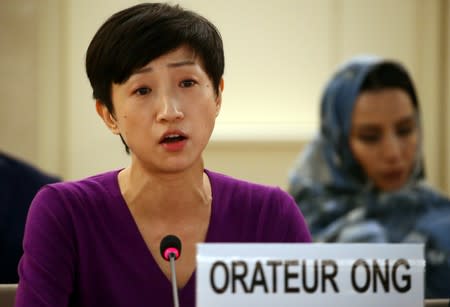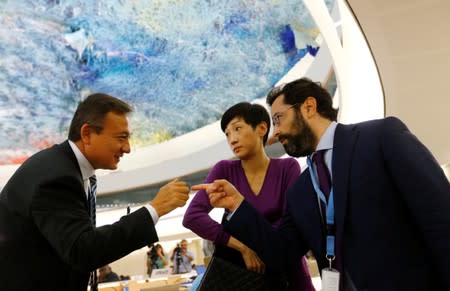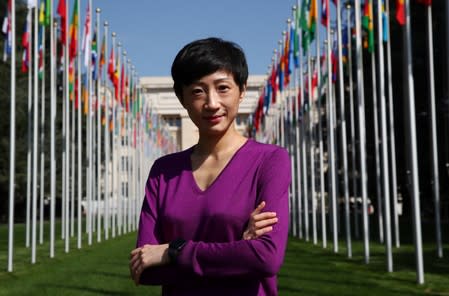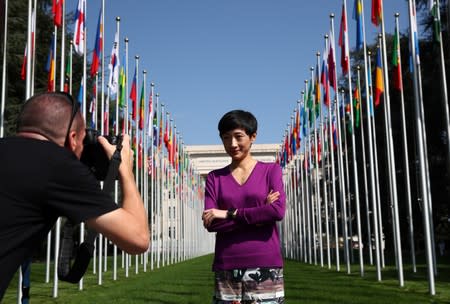Hong Kong legislator urges UN rights body to probe 'police abuse'
GENEVA (Reuters) - A pro-democracy Hong Kong legislator called on the top U.N. human rights body on Monday to investigate what she said were "brutal crackdowns" and "police brutality" against demonstrators in the former British colony.
Tanya Chan addressed the U.N. Human Rights Council in Geneva as Hong Kong's businesses and metro stations reopened as usual on Monday after a chaotic Sunday when police fired water cannon, tear gas and rubber bullets at protesters who blocked roads and threw petrol bombs outside government headquarters.
"Today marks the 100th day of the movement, but there is no sign the police will exercise restraint. This is a direct result of the lack of democracy in Hong Kong, as the government is not held accountable for its endorsement of police abuse," Chan said.
Referring to U.N. human rights boss Michelle Bachelet, she said: "Will the High Commissioner support our appeal for this Council to convene an urgent session and establish a Commission of Inquiry, to ensure justice and human rights for the people of Hong Kong?"
China's diplomatic mission wrote to the United Nations in Geneva at the weekend urging it to deny Chan accreditation for the event, according to a letter seen by Reuters.
It called her a "convicted criminal", citing her suspended sentence handed down in June after she was found guilty of inciting public nuisance during 2014 pro-democracy protests.
Hong Kong returned to China in 1997 under a "one country, two systems" formula that ensures freedoms not enjoyed on the mainland.
The spark for the latest protests was planned legislation, now withdrawn, that would have allowed people to be sent to mainland China for trial. They have since broadened into calls for universal suffrage.
China insists that Hong Kong is an internal issue. It has accused foreign powers, particularly the United States and Britain, of fomenting the unrest and told them to mind their own business.
(Reporting by Stephanie Nebehay; Editing by Robert Birsel)





